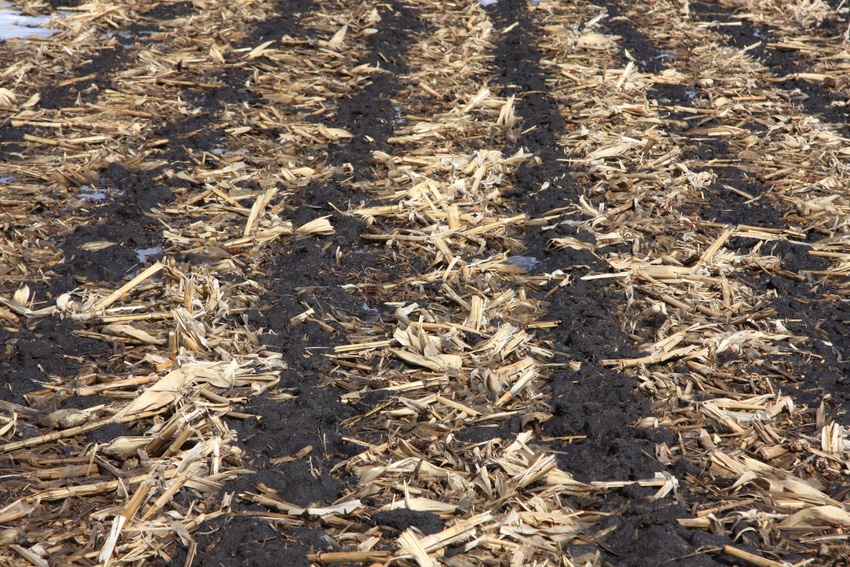March 7, 2018

Rep. Tim Walz, D-Minn., introduced a bill that will make on-farm conservation easier and more accessible for family farmers, the Strengthening Our Investment in Land Stewardship Act. The SOIL Stewardship Act will streamline and strengthen the farm bill’s two major working lands conservation programs: the Conservation Stewardship Program and the Environmental Quality Incentives Program.
“We are grateful for Rep. Walz’s leadership on soil health and his commitment to making our agriculture system more sustainable from the ground up,” said Alyssa Charney, NSAC Senior Policy Specialist. “The National Sustainable Agriculture Coalition endorses this bill, and firmly believes that it should serve as the blueprint for working lands conservation reforms in the upcoming farm bill.”
“Maintaining our soil health is critical," Walz said. "By empowering our farmers and ranchers to continue to feed, fuel and clothe the world while maintaining the health of our resources, this commonsense bill benefits both the environment and the producer’s bottom line.”
CSP is unique among farm bill programs because it helps farmers and ranchers target and solve priority resource concerns using comprehensive, whole farm conservation systems. More than 72 million acres are enrolled in CSP.
In addition to being the largest conservation program by acreage, CSP is also the only program focused on solving priority environmental concerns through continual improvement, using specific stewardship metrics as a guide. The SOIL Stewardship Act strengthens that distinctive CSP focus, while also making the program more accessible by creating a graduation process from EQIP. This allows farmers to move from receiving the one-time cost-share support offered by EQIP, to whole farm, comprehensive CSP assistance.
“By aligning the basic provisions of the two programs and supporting the graduation process from individual conservation activities to whole farm assistance, the SOIL Stewardship Act makes it easier to access conservation assistance programs and makes the whole process more farmer friendly,” said Charney.
The SOIL Stewardship Act makes soil health a priority in the farm bill. Within CSP, the bill incentivizes the adoption of cover crops and supports supplemental payments for resource-conserving crop rotations and managed intensive rotational grazing. The bill also encourages and rewards farmers for engaging in comprehensive conservation planning.
“Nothing in agriculture is more fundamental than healthy, productive soils,” said Charney. “Yet developing and implementing an appropriate conservation plan for a particular farming operation can be challenging and costly. The SOIL Stewardship Act will help provide the support and incentives that farmers need to take their conservation activities to the next level.”
The bill also includes provisions to address water and wildlife concerns. The SOIL Stewardship Act reserves $500 million in annual EQIP funding for source drinking water protection, and encourages innovative water-conserving irrigation projects. The bill also increases the amount of EQIP and CSP funding for wildlife habitat creation and improvement.
“Despite widespread agreement on the critical importance of addressing polluted runoff and its impairment of our waterways, EQIP has not yet been empowered to seriously address these issues,” said Charney. “By adopting the provisions of the SOIL Stewardship Act, Congress can ensure that our conservation programs are going toward real, impactful stewardship initiatives that keep our water and other natural resources healthy.”
The SOIL Stewardship Act also maintains current acreage and funding levels for both CSP and EQIP, focusing on internal improvements to the programs rather than on increasing total authorized levels.
“The last farm bill cut funding for on-farm conservation by $4 billion; $6 billion when you factor in sequestration,” said Charney. “Those cuts have had a devastating impact on family farmers and ranchers, and stymied their efforts to make their operations more resilient through conservation stewardship. The 2018 Farm Bill must reinvest in soil health by protecting and enhancing both EQIP and CSP. NSAC will be working closely with our 120 members and our allies in Congress to include the SOIL Stewardship Act in the next farm bill, and ensure that American producers have the support and resources they need to steward their lands for generations to come.”
Source: National Sustainable Agriculture Coalition, Office of Rep. Tim Walz
You May Also Like




